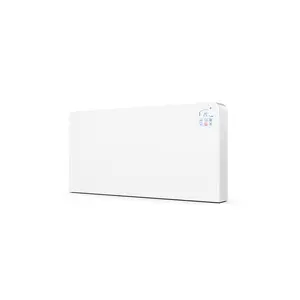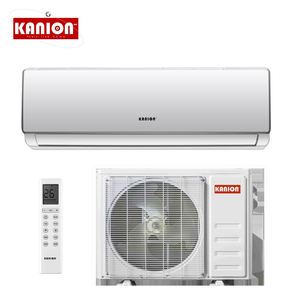Navigating the world of climate control solutions can be a complex endeavor, particularly when seeking energy-efficient options. Among these solutions, the dc air conditioner stands out as a versatile and eco-friendly choice for various applications. This category of air conditioners operates directly on direct current (DC) power, making them suitable for use in locations where alternating current may not be readily available or desired for energy conservation reasons. Understanding the nuances of DC air conditioning systems, from their types to features and materials, enables businesses to make informed decisions for their specific cooling needs.
Types of DC air conditioners
DC air conditioning systems come in several forms, each designed to cater to different environments and uses. The 12v dc air conditioner is particularly common in smaller applications, such as in vehicles or small cabins, where its low voltage requirements allow for safe and efficient operation. On the other hand, the 24v dc air conditioner and 48v dc air conditioner variants are often employed in larger spaces or in scenarios that demand more robust cooling power, such as in commercial vehicles or sizable off-grid solar-powered installations. For maritime environments, the marine dc air conditioner is engineered to withstand the harsh saline conditions while providing consistent cooling on board. In the realm of recreational travel, the RV dc air conditioner ensures comfort for travelers by effectively managing the internal climate of their mobile accommodations. Lastly, the portable dc air conditioner offers unparalleled flexibility, as it can be moved from one location to another with ease, making it an ideal choice for temporary setups or areas where permanent installation is not feasible.
Features of DC air conditioners
The features that distinguish dc air conditioners from their AC counterparts are numerous. A significant aspect is their efficiency; these units are adept at converting power into cooling without incurring the losses typically associated with AC to DC conversion. This directly translates into energy savings, which is particularly beneficial for settings that rely on battery or solar power sources. Another compelling feature is the adaptability of these systems. With advanced control systems, many DC air conditioners can modulate their cooling output based on the ambient temperature and cooling demand, further enhancing their efficiency. Additionally, noise levels are a consideration for many users, and DC units often operate more quietly than traditional AC models, making them suitable for environments where noise pollution is a concern.
Materials and construction of DC air conditioners
The materials used in the construction of dc air conditioners are selected to ensure durability and performance. Typically, these units are constructed from corrosion-resistant metals, such as stainless steel or aluminum, which are capable of withstanding various environmental conditions without deteriorating. The internal components, including compressors and evaporators, are also made from high-grade materials designed for optimal heat exchange and longevity. Insulation is another critical factor in the construction of these air conditioners. Effective insulation not only retains the cold air produced by the unit but also prevents external heat from infiltrating the system, maintaining efficiency. Rubber and foam are commonly used insulation materials that contribute to the overall performance of the system by minimizing thermal loss.
In conclusion, the dc air conditioner category encompasses a range of products tailored to meet specific cooling requirements across industries and applications. By understanding the types, features, and materials associated with these systems, businesses can select the appropriate DC air conditioning solution that aligns with their operational needs and sustainability goals.












































 浙公网安备 33010002000092号
浙公网安备 33010002000092号 浙B2-20120091-4
浙B2-20120091-4